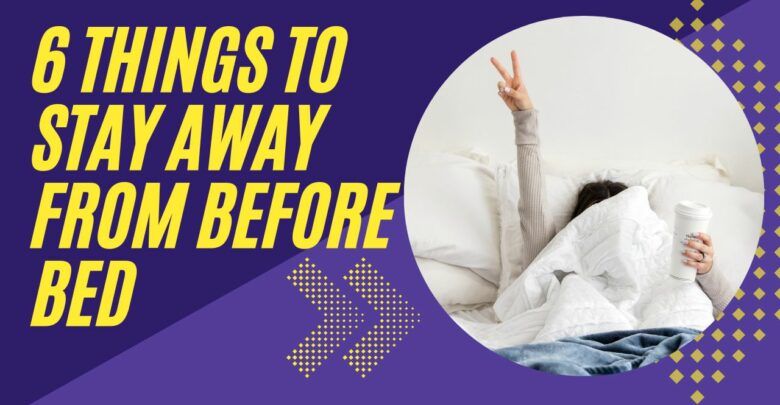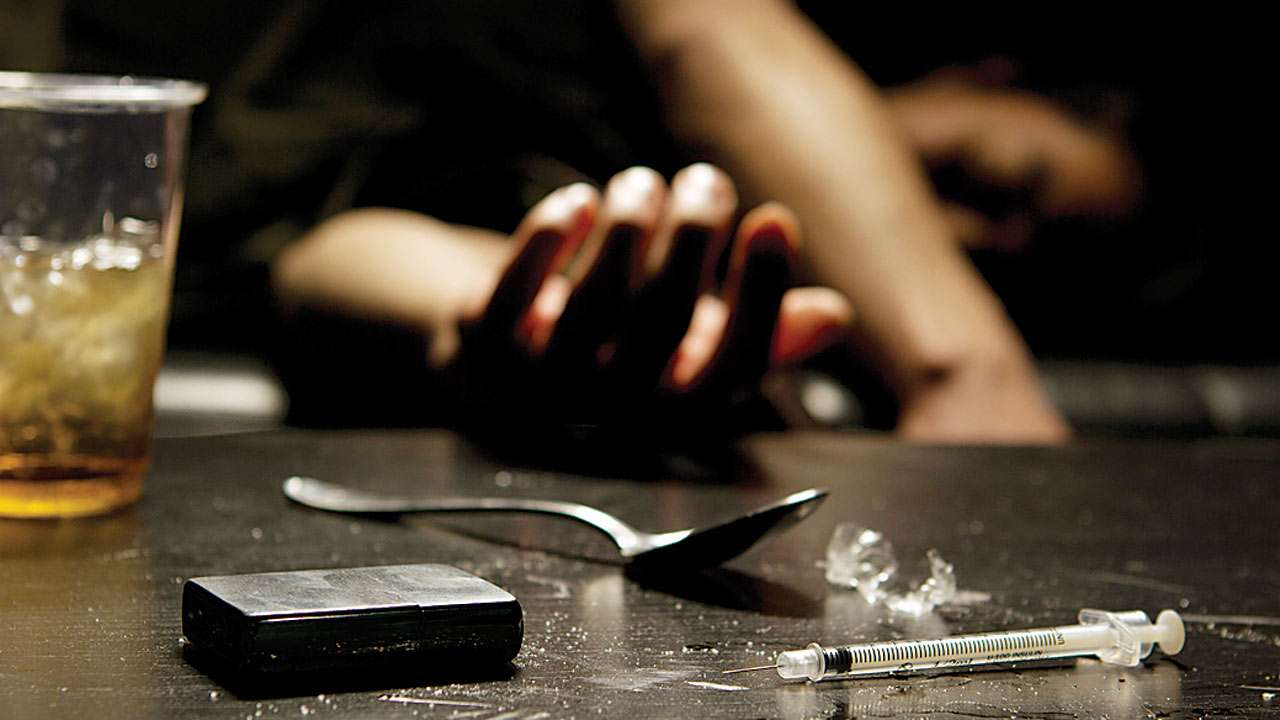Health and Medical
6 Things to stay away from before bed to have a restful night’s sleep

Nearly one-third of adults in America don’t get the recommended seven hours of sleep each night. Numerous individuals struggle to fall or remain asleep or experience sleep problems such as sleep apnea, restless legs syndrome, or insomnia. This is concerning because when you don’t get enough sleep, you can be giving up a lot. Lack of sleep can negatively affect your health, mood, and capacity to function at work or in school.
The fact that your body produces hormones like growth hormones when you sleep makes sleep crucial for maintaining good health.
This hormone helps both children and adults mend their cells and tissues and grow as children do. The immune system is strengthened by a restful night’s sleep, which may help to explain why getting enough Sleep Preferences keeps you healthy and enables you to recover from illness.
The good news is that by creating a nice nightly ritual and following excellent sleep hygiene, you may encourage better sleep. In order to get a good night’s sleep, there is a lot of advice on what to do before bed, but it’s also important to know what to avoid. The majority of people can benefit from avoiding the sleep disruptors listed below, even if appropriate sleep hygiene varies based on age, gender, and state of health.
Avoid foods with caffeine and tobacco in them
To maintain proper sleep hygiene, refrain from consuming stimulants like coffee, tea, energy drinks, soft drinks, and chocolate before bed. Studies have shown that caffeine might make it difficult to fall asleep, even at moderate levels. Have your last caffeinated beverage or snack at least six hours before bedtime to prevent caffeine from disrupting your sleep. If you are sensitive to caffeine, it is preferable to have your final caffeinated beverage 12 hours before bedtime.
The caffeine concentration of a few popular caffeinated beverages is listed below:
- 12 ounces of caffeine-containing soft drink: 30–40 mg
- Eight ounces of green or black tea have 30 to 50 milligrams of caffeine,
- whereas eight ounces of coffee contain 80 to 100 milligrams.
- An energy drink contains 40 to 250 milligrams per eight ounces.
The nicotine in tobacco can also prevent you from sleeping. Studies have shown that nicotine in tobacco products such cigarettes, cigars, chewing tobacco, and vape liquid promotes trouble falling asleep and raises the likelihood of fragmented sleep, which causes daytime sleepiness. Smoking is also connected to a rise in respiratory conditions that impair sleep and cause daytime sleepiness.
- Avoid or minimize your use of tobacco products before bedtime to get a better night’s sleep.
- Avoid evening pursuits like exercise.
Because regular exercise has been shown to increase both sleep quality and duration, it is frequently recommended to promote better sleep. The timing of your workout is crucial, though. Avoid working out shortly before bed. Some persons may develop insomnia as a result of overtraining or exercise that occurs less than three hours before bedtime.
Try some light yoga before bed instead, as regular yoga practice has been shown to improve sleep quality and lessen insomnia.
limited use of digital devices like laptops and phones
It may be tempting to check your text messages, surf social media, watch a movie, or attend a virtual happy hour at the end of the day, but doing so can prevent you from falling asleep. Blue-wavelength light from cellphones, tablets, and laptop computers has been reported to disrupt sleep when used right before bed. This light may interfere with sleep by reducing the hormone melatonin, which regulates sleep and may make you feel awake at night.
Avoid drinking alcohol.
Before going to bed, some people find relaxation in a nightcap. Alcohol may help you fall asleep at first, but studies have shown that it might hinder REM sleep, which is essential for getting a decent night’s rest. Late-night alcohol use has also been connected to lower melatonin levels, which regulate sleep, and morning headaches brought on by interrupted sleep.
Avoid Medications that Disrupt Sleep
Certain medications can affect sleep by raising blood pressure or heart rate, which can interrupt sleep. Because of this, it’s crucial to know when to take drugs in order to minimize sleep interruptions.
In addition, some individuals assert that common medications like decongestants or pseudoephedrine cause sleep problems. Some persons who use pseudoephedrine may develop restless legs syndrome, a condition that frequently makes it difficult to fall asleep. Sudafed and other cold and allergy medications may include pseudoephedrine.
You might be curious as to whether Sudafed keeps you alert. If you use these medications, you might want to try a nocturnal variant like Sudafed Nighttime. Other research, however, has shown that pseudoephedrine has no adverse effects on the quality of sleep.
To find out if a medication you’re taking can affect your ability to sleep, consult the patient information that comes with it or speak to your doctor or pharmacist.
Avoid eating late-night meals and snacks
Due to busy schedules and long days, it may be essential to have a late dinner or to indulge in comfort foods in the evening. Be aware that these snacks can prevent you from falling asleep at night. Eating later in the day may change your circadian rhythm and make sleep disorders like obstructive sleep apnea worse. To ensure sufficient sleep, avoid eating just before bed.
Additionally, avoid overindulging around dinnertime because bigger meals may worsen indigestion and interfere with sleep. You can wake up with the urge to urinate if you drink too much fluid. Many people believe that a pre-bedtime snack can trigger nightmares, despite the need for more research—another reason to avoid eating just before bed.
Conclusion
You might be able to sleep better if you stay away from these common sleep disruptors. By taking quick naps during the day or melatonin supplements, which help control circadian cycles, you can also supplement your sleep. The first step to better sleep is keeping track of your sleep hygiene and creating a relaxing nighttime routine.
However, you might need to take more action if your sleep quality does not improve. Visit your doctor or an online Write for us health consultation as soon as possible if you think you could be having sleep problems.
Before night, try some calming hobbies; it will help you go asleep much faster. It’s beneficial to take some time to unwind so that falling asleep at night will be easier. One of the most important methods to make sure you are prepared for each new day is to have a good night’s sleep, so try out these suggestions and see which ones work the best for you.





